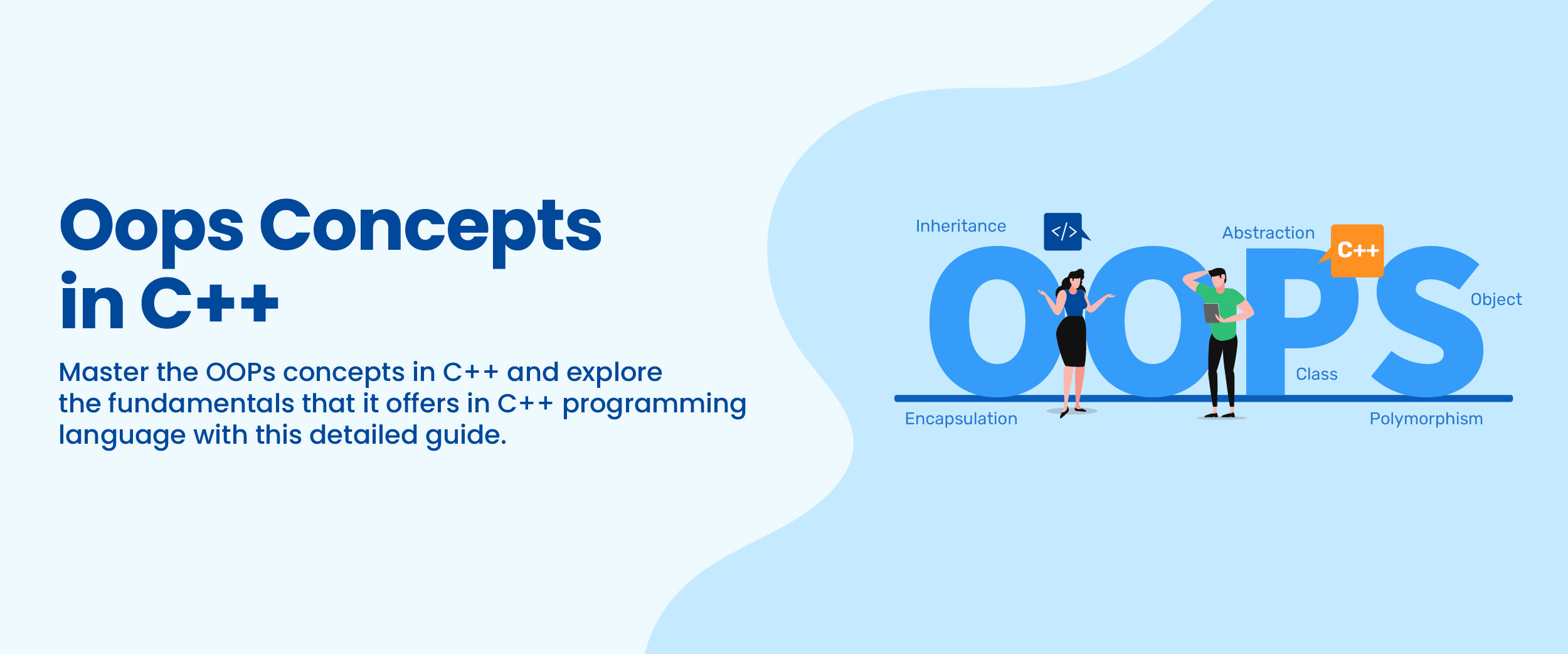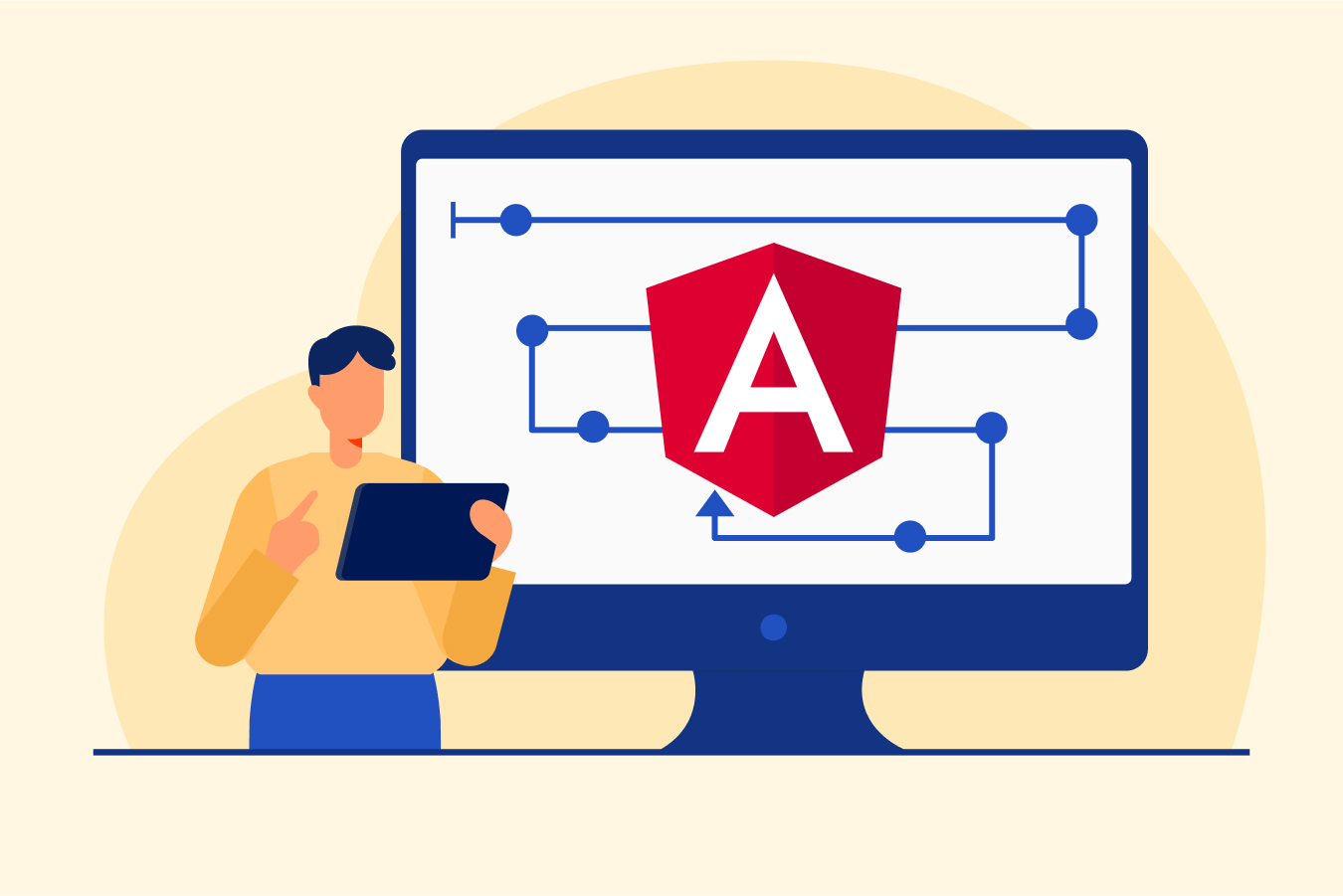OOPS Concepts in C++: A Comprehensive Guide
C++ is a popular programming language widely utilized for developing high-performance applications, such as operating systems, game engines, and financial applications. One of the essential features which make C++ such a powerful language is its implementation of object-oriented programming (OOP) concepts.
In this article, we will discover the fundamentals of OOPS concepts in C++ involving inheritance, polymorphism, encapsulation, and abstraction. We will also discuss why OOP is essential for building complex applications. Let’s begin.
OOPS Concepts in C++: An Overview
Object-oriented programming is a crucial programming paradigm that provides a path to organize code into reusable and modular components. It is based on the concept of objects, which are instances of classes containing both data and behavior. It provides a modular, efficient, and scalable approach to programming, which facilitates reusability, simplification of implementation details, and abstraction for better maintenance.
C++ is one of the most popular languages which support OOP concepts. It provides a robust and flexible implementation of OOP, enabling developers to build complex applications with ease. Given below are some of the most important C++ OOPS concepts.
1. Encapsulation
It is the process of wrapping data and the methods which operate on that data into a single unit, known as a class. It ensures that the data is protected from unauthorized access. In C++, encapsulation is attained by declaring class members as private, public, or protected. Private members can only be accessed within the class, while public members can be accessed from anywhere in the code.
Encapsulation also hides the implementation details of an object and exposes only the needed interfaces. By hiding the implementation details, it makes the code more secure and easier to maintain. In C++, you can utilize access modifiers like public, private, and protected to define the scope of data and methods.
2. Abstraction
It is the process that involves hiding implementation details while showing only crucial features to the user. It allows developers to create simple models which represent complex systems. In C++, abstraction is attained by creating abstract classes or interfaces. An abstract class is a class that cannot be instantiated and is utilized only as a base class for other classes.
Abstraction is one of the basic concepts of OOPS concepts in C++ that promote code maintainability, reducing the chances of errors and improving code readability.
3. Inheritance
Inheritance facilitates code reuse and modularity. It is a mechanism through which a new class is obtained from an existing class. The new class is called the child class, and the existing class is called the parent class. The child class inherits all the properties of the parent class and can also add to its functionality.
Inheritance is fruitful when we desire the creation of a new class with similar properties and behaviors to an existing class. However, it is accompanied by some changes. By utilizing inheritance, we can reuse the parent class code while saving time and effort.
4. Polymorphism
Polymorphism is the ability of an object to take on numerous forms, depending on the context in which it is used. It enables developers to write code that can work with objects of diverse classes or types. In C++, polymorphism is attained through two mechanisms: function overloading and virtual functions.
Function overloading is the process of the creation of numerous functions with the same name but different parameters. Virtual functions enable the derived class to redefine the functionality of a function already pre-defined in the base class.
Polymorphism is an impactful OOPS concept that promotes code flexibility along with adaptability. It enables the creation of a single interface to represent different types of objects. This means that the same code can work with various data types or objects. It can be achieved in C++ using function overloading, virtual functions, templates, and inheritance. By using polymorphism, we can write generic code that works with multiple data types, promoting code reuse and reducing code duplication.
To learn more about these OOPS concepts, you can opt for an in-depth C++ course.
Best Practices for OOPS Concepts in C++
To efficiently utilize these OOPS concepts, it is crucial to follow these practices:
- Use object-oriented design principles, such as SOLID (Single Responsibility, Open/Closed, Liskov, Interface Segregation, and Dependency Inversion) and GRASP (General Responsibility Assignment Software Patterns).
- Use encapsulation to hide the internal details of an object from outside code.
- Use abstraction to create simple, reusable models of complex systems.
- Use inheritance to create hierarchies of classes that share functionality.
- Use polymorphism to write code that can work with objects of different classes or types.
Advantages of OOPS Concepts in C++
Given below are some of the benefits of OOP in C++.
- They promote reusability by enabling programmers to reuse the code easily.
- They provide encapsulation which strengthens data along with operations.
- They also provide a modular programming approach.
- They provide abstraction by simplifying the complex code by hiding complex details and presenting only the essentials.
- Polymorphism makes the code flexible and adaptable to changing requirements.
Disadvantages of OOPS Concepts in C++
Given below are some of the disadvantages of OOPS concepts.
- They have a steep learning curve, so it requires a lot of effort to master.
- These concepts require additional overhead for initialization compared to procedural programming.
- They require careful memory allocation and deallocation, which can be complex and error-prone.
- In some cases, OOPS concepts can be less efficient than procedural programming.
- They require more planning and design upfront, which can be inflexible when requirements change.
Conclusion
C++ provides a robust and flexible implementation of OOPS, making it an ideal language for building complex applications. By mastering OOPS concepts in C++, like encapsulation, abstraction, inheritance, and polymorphism, developers can create reusable and modular code that is easy to maintain and extend.






